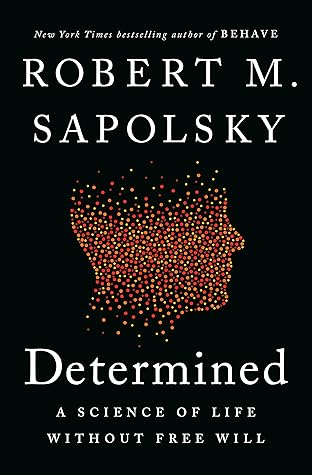A similar view comes from the distinguished philosopher Robert Kane, of the University of Texas: “Free will in my view involves more than merely free of action. It concerns self-formation. The relevant question for free will is this: How did you get to be the kind of person you now are?” Roskies and Shadlen write, “It is plausible to think that agents might be held morally responsible even for decisions that are not conscious, if those decisions are due to policy settings which are expressions of the agent [in other words, acts of free will in the past].”[3]
Welcome back. Just a moment while we sign you in to your Goodreads account.


